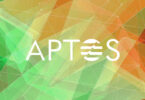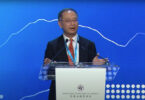Today, EJ Insight reported that Hong Kong property agency Centaline has completed a blockchain-based real estate platform with Microsoft and TFI Blockchain Technology. The platform, integrated with Centaline’s existing app, allows for immutably stored and digitally signed documents.
Centaline is one of Hong Kong’s largest real estate agencies with more than 60,000 employees and 2,000 branches across Hong Kong and China. Earlier this year the firm partnered with Microsoft. The project uses Microsoft’s Azure to host its blockchain solution and claims that 30% of its property sales now have the paperwork digitized using blockchain. In some regions the figure is as high as 40%.
There are currently two nodes, one controlled by Centaline and the other operated by TFI. But there are plans to add legal firms and banks early next year to handle verified documents.
Tomy Pang, CEO of Centaline Data Technology said that customers just want “an efficient and fast way to sign cumbersome paperwork.” He explained that the sale of second-hand properties involves a lot of tedious bureaucracy and extensive paperwork.
“Transfer of the paper documents is time- and effort-consuming, and there can be disputes over discrepancies in pricing and property information due to handwriting errors,” he said.
With blockchain, documents are digitized and protected from tampering. It further allows verification and signing within the app, so customers no longer have to make appointments and trips just to sign forms. This is particularly useful for international buyers of Hong Kong property.
“We have customers all over the world – even some residing as far away as Canada – who are keen to buy properties in Hong Kong,” said Pang. “With blockchain, they no longer need to take a flight to Hong Kong to sign documents and can now do that securely on their mobile phones.”
Pang outlined how Centaline hopes to increase adoption: “Our frontline staff and agents may not know what is ‘blockchain technology’ and how it works,” he said. “In order to encourage them to use e-forms and our mobile app, rather than traditional paper forms as they usually did, the company has been providing incentives – say, a reward scheme – to them.”
Indeed, fellow Hong Kong real estate developer, Stan Group, launched a blockchain incentive system this week. The project sees tokenization of properties which allow profits to be shared with employees. Link REIT, another Hong Kong-based firm, is using blockchain for solar panels on its real estate assets.
A similar project by the New World Development Company connects real estate stakeholders in one platform. The Bank of China’s Hong Kong arm was the first to participate.







